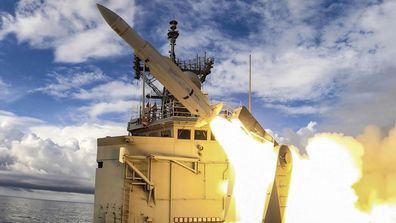The Pentagon is reportedly considering adding extra costs and conditions to the AUKUS deal, including demanding Australia’s nuclear submarines support the US in a conflict with China.
“The department is reviewing AUKUS as part of ensuring that this initiative of the previous administration is aligned with the President’s America First agenda,” a US defence official confirmed to 9News at the time.

The price tag, which Australia has already made its first payment on, is currently about $4.7 billion.
The Age reported another potential condition of a revised deal would be that the submarines be deployed to support the US in a conflict with China over Taiwan.

AUKUS has maintained broad bipartisan support in the US since it was brokered by President Joe Biden, Prime Minister Scott Morrison, and UK Prime Minister Boris Johnson.
The review itself was not a whole-of-government initiative, with Secretary of State Marco Rubio issuing a statement saying he was unaware of it at the time.
Defence Minister Richard Marles also previously downplayed the potential outcomes of the review, pointing out that Keir Starmer’s government in the UK had done the same thing before roundly re-endorsing AUKUS.

The staggering sums countries spend on defending themselves
The Age reported that the main driver of changes to AUKUS is US Undersecretary of Defence Elbridge Colby, who had previously opposed the sale of nuclear submarines to Australia.
But the US government has major fault lines on foreign policy, as witnessed when President Donald Trump directed the US military to attack nuclear sites in Iran recently.
Trump’s own mercurial approach to foreign policy is also muddying the waters on how the review will be received in the White House.






